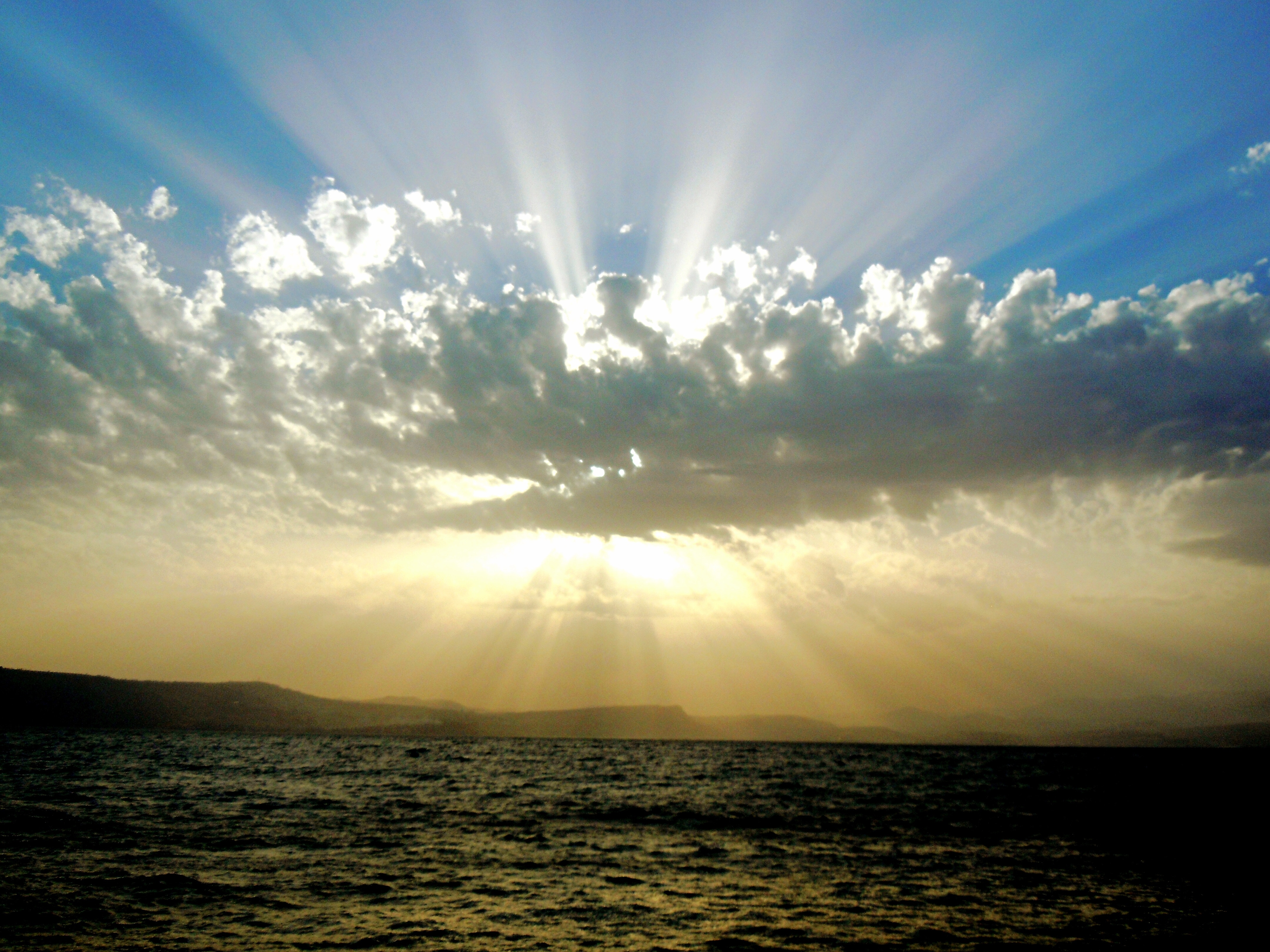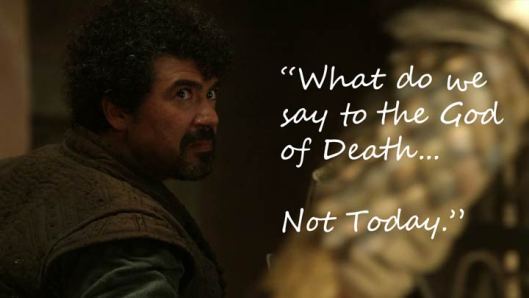The idea of death haunts the human animal like nothing else.
The real world is simply too terrible to admit. It tells man that he is a small trembling animal who will someday decay and die.
– Ernst Becker
I recently met an elderly Christian couple who were absolutely convinced about the existence of an afterlife. It was obvious how happy – one might almost say blissful – their faith allowed them to be. They radiated a sense of calm contentment I previously thought possible only for the greatest Zen masters. They had found their peace of mind through their belief that God was looking over them and guiding their life. 1 (click me)What I found most remarkable was that – despite their frailty and their awareness that their lives were nearing an end – they weren’t the least bit afraid of death. In a strange way, it almost seemed that they were looking forward to it. They trusted that death would not prove to be the end of their story, but merely the beginning of their happy afterlife together.

In an analogous way, you can derive genuine happiness and tranquility from a belief in an Eternal Blissful Life. This belief, too, assures you that death 2 will not be the end of your story. The crucial distinction is that you don’t need to rely on blind faith to justify this belief. We’re not talking about an ethereal realm overseen by a supernatural and omnipotent creator; we’re talking about a “heaven on earth” that’s entirely within the realm of scientific possibility.

I have a very naturalistic world view, and agree completely with how Stephen Hawking once put it:
The human race is just a chemical scum on a moderate-sized planet, orbiting around a very average star in the outer suburb of one among a hundred billion galaxies. We are so insignificant that I can’t believe the whole universe exists for our benefit.
We are born; we live; we die. That’s what the process of evolution has resulted in: all life is destined to die. Humans are just electrochemical reactions in progress. Sure, we’re a fairly complicated and fascinating reaction 3 – but there’s no more inherent meaning or purpose to our lives than there is to the process by which rocks turn into sand. All the meaning we give our lives is artificial – invented by the people, for the people. The term “fate” – much like the concept that “everything happens for a reason” – is often used in a misguided fashion. Everything is caused by something else, sure; but that doesn’t lend the chain of causation some sort of deeper meaning. 4
I used to think that at the end of our insignificant lives, we simply die. End of story. There would be no afterlife, no transmutation of the soul – simply a cessation of existence, and a gradual decay of one’s body into dust.
That’s how I used to think. It’s not like I couldn’t live with that morbid thought – it didn’t actually cross my mind very often – yet I nonetheless find it far more pleasant to believe in an Eternal Blissful Life to fill the void left by religion’s demise. It’s a relief to think that I won’t merely die and dissolve into nothingness within the next 100 years. I were lying on my death bed right now, I would at least have hope.
In this entertaining TED Talk,Amanda Bennett says:
What experts call denial, I call hope. It is not a human bug. It is a feature!
I like that thought!
As to the meaning(lessness) of life: in an earlier note I had some fun about simply “inventing” your own meaning, since there’s no satisfying inherent one. But I’m actually a big believer in the need to invent your own meaning in order to make sense of life.
Here’s my version of an “invented meaning”: Far from my Current Life being insignificant and meaningless 5, I now think it’s tremendously important. It’s the springboard to my Eternal Blissful Life, after all. And I want that leap to be graceful! I would like the first chapter of my life to be thrilling, so that I’m deeply excited for it to continue. And in order to make the transition as graceful as possible, I need to be content, to take care of my body, to contribute to the world, and to be proud of my achievements. 6
I want to do all of these things because they’re what contribute to a good life. And having a good life increases my chances of one day enjoying an Eternal Blissful Life. 7
A final thought: it’s not just your own death that should seem less frightening thanks to cryonics and other scientific advances. It’s also the death of your siblings, your friends, and your children. 8 Many of the people closest to you may be able to live forever alongside you. To get a feel for this concept, I recommend reading this touching letter by transhumanist Eliezer Yudkowsky about the recent death of his brother.
I leave you with this quote by Syrio Forel, from Game of Thrones:

